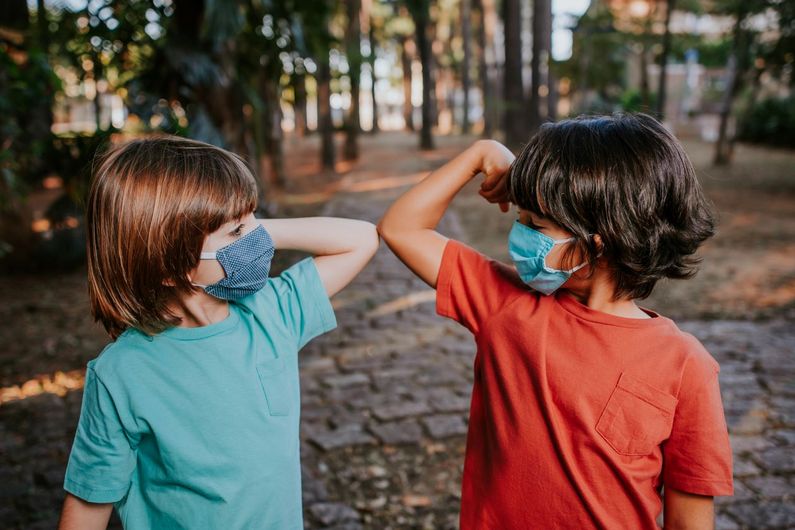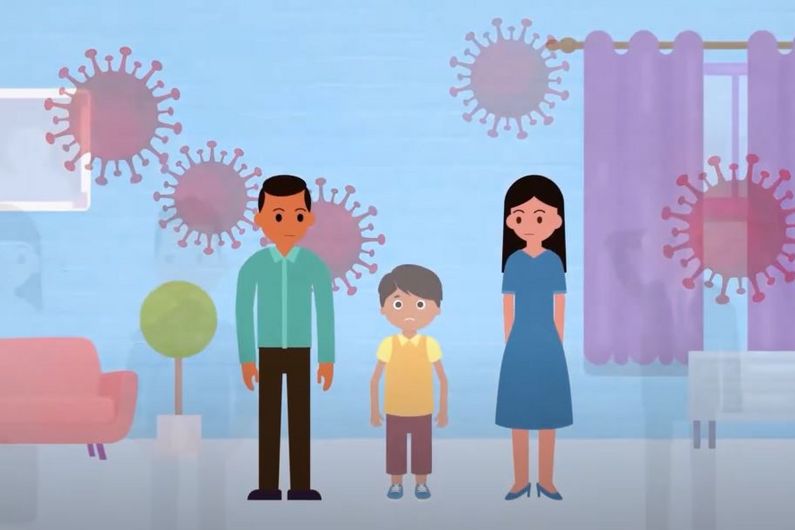Tracking COVID-19 in kids
- Salle de presse
10/20/2020
- UdeMNouvelles
Led by UdeM’s Kate Zinszer, researchers are testing Montreal children for antibodies of the COVID-19 virus, based on a simple blood sample that will show how many have been infected.
It’s a bit of a mystery: how does COVID-19 affect children, and how many have been infected since the pandemic began? Knowing the answers, public-health authorities think they could better stem the spread of the disease.
Now researchers at Université de Montréal are about to find out.
Led by Kate Zinszer, an assistant professor at UdeM’s School of Public Health, and in collaboration with the Montreal Public Health Department, the researchers began approaching parents this week to participate in a new project called EnCORE.
Its goal is to estimate how many Montreal children, ages 2 to 17, have been infected with SARS-CoV-2, the virus that causes COVID-19. Preliminary results are expected early next year.
Backed by the federally funded COVID-19 Immunity Task Force, Zinszer’s team is targeting primary schools, high schools and daycares in four Montreal neighbourhoods: Beaconsfield, Hochelaga-Maisonneuve, Montréal-Nord and the Plateau Mont-Royal.
Parents who choose to participate will answer an online questionnaire and then, at home, administer a quick finger prick test to provide a microsample of their child’s blood to researchers for analysis in a laboratory.
We asked Zinszer about her project and what she and her colleagues at UdeM’s Centre for Public Health Research hope to find out.
Why should parents sign their child up for EnCORE?
Two reasons, really. First, the test will tell them whether their child was previously infected with COVID-19; maybe they had only mild symptoms or even none at all. Second, from a public-health standpoint, it’s extremely important to know how many kids have been infected in Montreal; it will give us an idea of the amount of transmission in kids and have a direct impact on how we strategize to prevent the spread of the disease in neighbourhoods and in schools and daycares.
Will the families’ privacy be respected?
Absolutely. All the information we collect for the study is completely confidential and secure, and that includes personal information like names; it can’t in any way be linked with the blood test or with what the person answered on the questionnaire. Everything is stored on encrypted and secure computer servers and only the research team has access to the data; schools and daycare will only get an overall group report and this report will also be provided to the families that participated in this study.
What’s involved in taking the test?
To see if they’ve been exposed to the virus, a child will give a small blood sample via a finger prick; the sample is collected on a special piece of paper that’s then sent to a laboratory, where we look for specific antibodies produced to fight a SARS-CoV-2 infection. These antibodies stay in the body even after the infection goes away, so we will be able to determine if the child has had a previous infection with the virus. We won’t be able to tell if the child is currently infected; that takes a different kind of test.
If you find antibodies, does that mean the child won’t get infected again?
No, we don’t know that yet. A positive test won’t tell us if a child has immunity; they might only have partial or temporary immunity. So having the antibodies does not mean that the child is protected from new SARS-CoV-2 infections. I should emphasize: the results of this study are only for research purposes. They shouldn’t be used for treatment, diagnosis or as a way for an individual to avoid getting infected.
What if the test turns out to be negative – i.e., no antibodies?
A negative result simply means that antibodies from an exposure to the COVID-19 virus were not found in the child’s blood. But that could mean several things: either the child has not been exposed, or they have been exposed but their immune system did not have enough time to develop an antibody response, or they were exposed but their immune system did not respond by producing antibodies.
Overall, what do expect will be the impact of your study?
Depending on what we find, the results could be useful on many fronts. First is understanding how many infections of SARS-CoV-2 have occurred in four very different neighbourhoods of Montreal. These results could then be used to help inform decisions about control measures in schools or daycares, such as mask wearing or social distancing. We also expect the study will have an impact nationally and internationally; Montreal is the epicentre COVID-19 in Canada, so what we learn here will be beneficial for everyone, wherever they are.
Media contact
-
Jeff Heinrich
Université de Montréal
Tel: 514 343-7593















